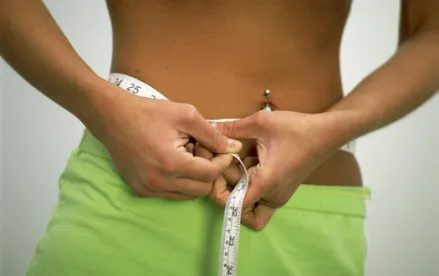Wacoal America and Norm Thompson, both manufacturers of women’s shapewear, recently entered into consent orders to pay sums of $230,000 and $1.3 million, respectively, and agree to not make any false and misleading future claims that their products cause weight loss, fat loss or eliminate cellulite as the result of FTC enforcement action as the result of making unsubstantiated weight-loss claims. This is yet another reminder that any claims made in advertisements or marketing materials as to weight-loss, fat-loss or cellulite elimination must be substantiated by a scientific study or the manufacturer may face an FTC action and potentially substantial fines.
Wacoal marketed its iPant shapewear as the “anti-cellulite shapewear”. It claimed that the caffeine microcapsules embedded in the product promoted fat destruction and the Vitamin E infusion helped restore the skin’s smoothness and increase firmness. Wacoal declared that after using the product for 8 hours a day, 7 days a week for 28 days, women reported improved appearance and a reduction in thigh measurement.
Norm Thompson sold similar shapewear under the brand name “Lytess®”. Lytess® products also incorporated caffeine into the fabric. Norm Thompson claimed that Lytess® shorts could help women lose 2” off their hips and 1” off their thighs in less than a month. In addition, Norm Thompson also prominently represented that the Lytess® products were recommended by Dr. Oz with statements such as “Dr. Oz loves these.”
In separate complaints against the companies, the FTC alleged that the scientific results reported by Wacoal and Norm Thompson in its advertisements and marketing materials did not prove that wearing the garments substantially reduced a wearer’s hip or thigh size. The average hip and thigh reduction reported in the clinical trials ranged between 1/8th and 1/4th of an inch. Moreover, the FTC noted that the clinical trials were unblinded and uncontrolled and the results from the studies were greatly exaggerated. The FTC concluded that the companies failed to adequately support the weight-loss and other claims. With regard to the Dr. Oz endorsement claims, the FTC found that the products were, in fact, not recommended by Dr. Oz.
The FTC routinely views weight-loss claims with skepticism. In January this year, the FTC issued a report, “Gut Check: A Reference Guide for Media on Spotting False Weight-Loss Claims,” as part of “Operation Failed Resolution,” the FTC’s ongoing effort to stop misleading claims for products promoting easy weight loss and slimmer bodies. The Gut Check Guide lists common weight loss representations — or “gut check” claims — that the FTC considers to be never true and therefore subject to closer scrutiny:
-
weight loss of two pounds or more a week for a month or more without dieting or exercise;
-
substantial weight loss no matter what or how much the consumer eats;
-
permanent weight loss even after the consumer stops using product;
-
blocks the absorption of fat or calories to enable consumers to lose substantial weight;
-
safely enables consumers to lose more than three pounds per week for more than four weeks;
-
substantial weight loss for all users; or
-
substantial weight loss by wearing a product on the body or rubbing it into the skin.
Although the Gut Check Guide is primarily directed at publishers and media outlets, it is a useful guide for any company that is claiming that its product causes weight loss, fat loss or eliminates cellulite. If either Wacoal America and Norm Thompson had made a simple check of the Gut Check Guide, they would have avoided the consent orders and steep fines which resulted from the FTC’s action.
Attached are copies of the complaints and consent orders.



 />i
/>i
